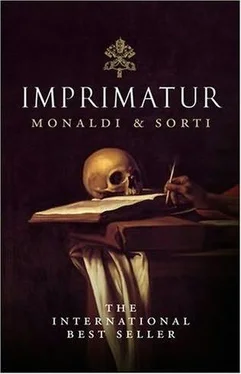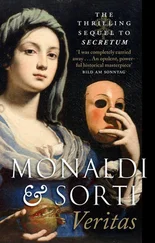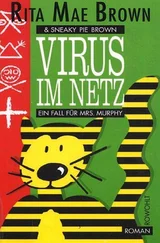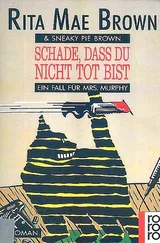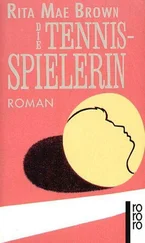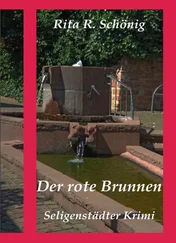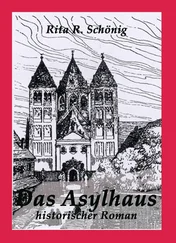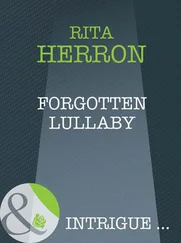Rita Monaldi - Imprimatur
Здесь есть возможность читать онлайн «Rita Monaldi - Imprimatur» весь текст электронной книги совершенно бесплатно (целиком полную версию без сокращений). В некоторых случаях можно слушать аудио, скачать через торрент в формате fb2 и присутствует краткое содержание. Жанр: Исторический детектив, на английском языке. Описание произведения, (предисловие) а так же отзывы посетителей доступны на портале библиотеки ЛибКат.
- Название:Imprimatur
- Автор:
- Жанр:
- Год:неизвестен
- ISBN:нет данных
- Рейтинг книги:5 / 5. Голосов: 1
-
Избранное:Добавить в избранное
- Отзывы:
-
Ваша оценка:
- 100
- 1
- 2
- 3
- 4
- 5
Imprimatur: краткое содержание, описание и аннотация
Предлагаем к чтению аннотацию, описание, краткое содержание или предисловие (зависит от того, что написал сам автор книги «Imprimatur»). Если вы не нашли необходимую информацию о книге — напишите в комментариях, мы постараемся отыскать её.
Imprimatur — читать онлайн бесплатно полную книгу (весь текст) целиком
Ниже представлен текст книги, разбитый по страницам. Система сохранения места последней прочитанной страницы, позволяет с удобством читать онлайн бесплатно книгу «Imprimatur», без необходимости каждый раз заново искать на чём Вы остановились. Поставьте закладку, и сможете в любой момент перейти на страницу, на которой закончили чтение.
Интервал:
Закладка:
Rita Monaldi, Francesco Sorti
Imprimatur
Divinatory interpretations of the Arcana of the Judgement
Resurrection of the past
Reparation of past wrongs
Wise judgement of posterity.
Nothing is lost; the past lives on in what pertains to the future.
Oswald Wirth, The TarotComo, 14th February, 2040
To His Excellency Msgr Alessio Tanari
Secretary of the Congregation for the Causes of Saints Vatican City
In nomine Domini
Ego, Lorenzo Dell'Agio, Episcopus Comi, in processu canonizationis beati Innocentii Papae XI, iuro me fideliter diligenterque impleturum munus mihi commissum, atque secretum servaturum in iis ex quorum revelatione preiudicium causae vel infamiam beato afferre posset. Sic me Deus adiuvet.
Dearest Alessio,
Be so good as to pardon me if I open my letter to you with the ritual oath: to maintain secrecy concerning anything I may have learned that might defame the reputation of a blessed soul.
I know that you will excuse your former tutor at the seminary for adopting an epistolary style less orthodox than that to which you are accustomed.
You wrote to me three years ago, on the instruction of the Holy Father, inviting me to throw light on a presumed case of miraculous healing which took place in my diocese over forty years ago, through the action of the Blessed Pope Innocent XI: that Benedetto Odescalchi from Como of whom you, as a boy, first perhaps heard tell from none other than myself. As you will surely remember, the case of mira sanatio concerned a child, a little orphan from the country near Como whose finger was bitten off by a dog. The poor bleeding digit, immediately recovered by the little one's grandmother, who held Pope Innocent in special devotion, was wrapped by her in the holy image of the Pontiff and handed over to the doctors in casualty. After an operation to graft it back, the child instantly recovered feeling in his finger and was able to use it perfectly; both the surgeon and his assistants were utterly amazed.
In accordance with your indications and with the desire expressed by His Holiness, I have instructed the cause super mira sanatione, which my predecessor did not in his time see fit to initiate. I shall not expatiate any further on the inquiry, which I have just concluded, despite the fact that most of the witnesses to the event have since died, the records of the clinic were destroyed after ten years and the child, now in his fifties, resides in the United States. The acts will be sent to you under separate cover. As required by the procedure, you will, I know, submit these to the Congregation for its judgement, following which you will draft a report for the Holy Father. I am indeed aware of how eager our beloved Pontiff is to reopen the inquiry into the cause of canonisation of Pope Innocent XI so that, almost a century after his beatification, he may at last be proclaimed a saint. And it is precisely because I too care greatly about His Holiness's intention that I must now come to the point.
You will have noticed the considerable bulk of the folder which I have attached to my own letter; it is the typescript of a book that has never been published.
It will be hard to explain to you in detail how this came about, since the two authors, after sending me a copy, vanished completely. I fully trust that Our Lord will inspire the Holy Father and yourself, after reading this work, as to the best solution of the dilemma: secretum servire aut non? To pass over the text in silence or to publish? Whatever the decision arrived at, it will, for me, remain sacrosanct.
I beg to excuse myself at once if my pen-now that my spirit is free after three years of wearisome research-runs sometimes too freely.
I made the acquaintance of the two authors of the typescript, a young engaged couple, some forty-three years ago. I had just been appointed as a parish priest in Rome, where I had recently arrived from my dear Como, to which Our Lord was to accord me the grace to return as Bishop. The two young people, Rita and Francesco, were both journalists. They lived quite close to my parish church and so it was to me that they turned for instruction in preparation for matrimony.
The dialogue with the young couple soon developed beyond a simple teaching relationship and, with time, grew closer and more confidential. As chance would have it, the priest who was to conduct the ceremony suffered a serious indisposition only two weeks before the wedding. So it was quite natural that Rita and Francesco should ask me to perform the rite.
I married them on a sunny afternoon in mid-June, in the pure, proud light of the Church of San Giorgio in Velabro, a short distance from the glorious ruins of the Roman Forum and the Capitoline Arch. It was an intense ceremony, brimming over with emotion. I prayed ardently to the Most High that the young couple should be granted a long and serene life.
After the wedding, we continued to frequent one another for a few years. I learned thus that, despite the scant free time remaining to them after work, Rita and Francesco had never completely abandoned their studies. Although both of them, after obtaining their degrees in Literature, opted for the dynamic and cynical world of the written press, they still had not lost touch with their former interests. On the contrary, in their free moments, they continued to read good books and to visit museums and libraries.
Once a month, they would invite me to dinner or for afternoon coffee. Often, they would at the very last moment clear a chair heaped high with photocopies, microfilms, reproductions of antique prints and books, so that I could sit down; and these piles of paper seemed to grow higher with my every visit. I became curious and inquired what they were studying so enthusiastically.
They then told me how, some time previously, they had traced in the private collection of an aristocratic Roman book-lover a collection of eight manuscript volumes, dating back to the beginning of the eighteenth century. Thanks to the fact that they had friends in common, the owner, Marchese******, had given the couple permission to study these antique volumes.
The find was a veritable gem for students of history. The eight volumes were the collected letters of Abbot Atto Melani, a member of an ancient and noble Tuscan family of diplomats and musicians.
Yet the real discovery came later: bound in one of the eight volumes, a substantial set of manuscript memoirs had come to light. It was dated 1699 and written in minute letters, by a hand manifestly different from that of the remainder of the volume.
The anonymous author of the manuscript affirmed that he had been an apprentice in a Roman inn and told in the first person of surprising events which had taken place between Paris, Rome and Vienna in 1683. The memoirs were preceded by a brief letter of presentation, undated and naming neither sender nor addressee, the content of which was somewhat obscure.
For the time being, it was not given to me to know more. The young couple maintained the strictest reserve about their discovery. I understood only that, ever since they had found them, these memoirs had become the object and the cause of their animated research.
However, since both had left the academic world for good, and were thus no longer in a position to lend scientific dignity to their studies, the two young people had begun to hatch out the idea of writing a novel.
At first, they spoke of this as though in jest: they were going to remodel the apprentice's memoirs in the form and the prose of a novel. Initially, I was rather disappointed by the idea, which-priding myself on my passion for scholarship-I found faint-hearted and superficial.
Then, between one visit and another, I understood that the matter was becoming serious. A year had not passed since their marriage, and now they were dedicating all their free time to it. Later, they confessed to me that they had spent almost their entire honeymoon in the archives and libraries of Vienna. I asked no more questions, resolving that I would be only the silent and discreet confidant of their labours.
Читать дальшеИнтервал:
Закладка:
Похожие книги на «Imprimatur»
Представляем Вашему вниманию похожие книги на «Imprimatur» списком для выбора. Мы отобрали схожую по названию и смыслу литературу в надежде предоставить читателям больше вариантов отыскать новые, интересные, ещё непрочитанные произведения.
Обсуждение, отзывы о книге «Imprimatur» и просто собственные мнения читателей. Оставьте ваши комментарии, напишите, что Вы думаете о произведении, его смысле или главных героях. Укажите что конкретно понравилось, а что нет, и почему Вы так считаете.
